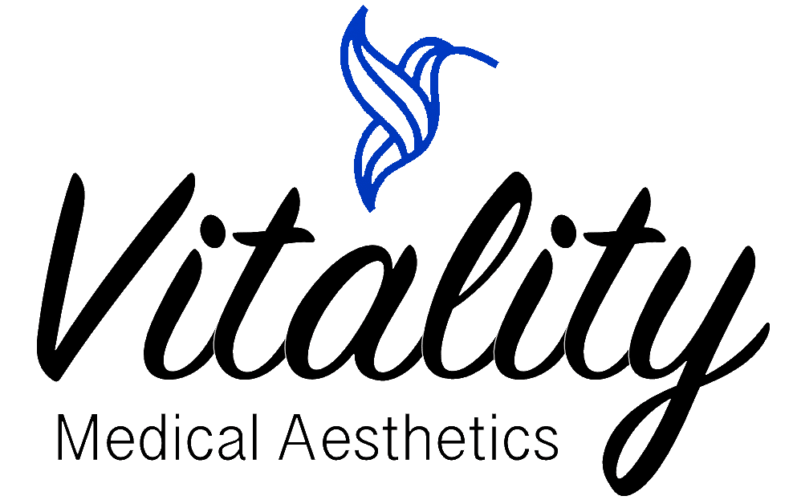Rosacea Specialists
Rosacea is a chronic skin condition that affects the face, causing redness, visible blood vessels, and sometimes small bumps. It commonly appears on the cheeks, nose, forehead, and chin. People with fair skin are more prone to developing rosacea, and it tends to worsen over time.
Rosacea can have various symptoms, such as persistent redness, visible blood vessels, acne-like bumps, and thickened skin. Some individuals may also experience eye problems, like dryness and highly visible redness. In this guide we will talk about important factors to consider, and things that are evaluated to consider treatment options. At Vitality Medical Spa, we regularly help with rosacea treatment in Orlando, FL – and we have a variety of options to help alleviate symptoms of Rosacea.
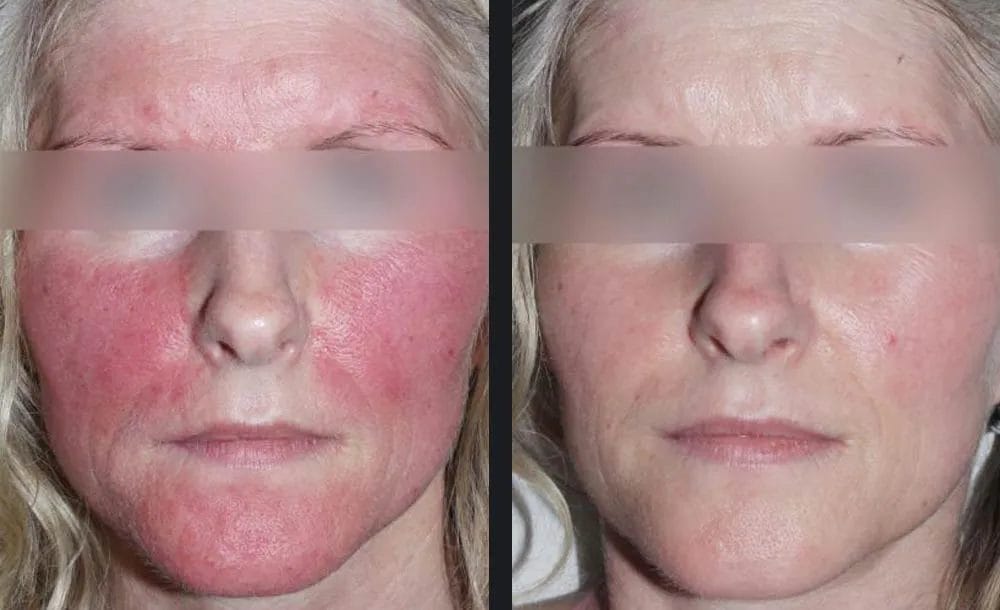
Understanding Rosacea: Causes and Symptoms
Rosacea is a chronic skin condition that affects millions of people worldwide. It is characterized by persistent redness, flushing, and visible blood vessels on the face, as well as the development of small bumps and pimples. While the exact cause of rosacea is still unknown, researchers believe that a combination of genetic and environmental factors contribute to its development. Certain triggers, such as sun exposure, hot and spicy foods, alcohol, and stress, can exacerbate the symptoms of rosacea.
One of the main challenges in managing rosacea is identifying the symptoms. The early stages of rosacea are often mistaken for other skin conditions, such as acne or eczema. However, there are several key signs to look out for. These include frequent flushing or blushing, persistent redness, visible blood vessels, bumps and pimples, and a burning or stinging sensation on the skin. If you experience any of these symptoms, it is important to seek professional help for an accurate diagnosis.
Diagnosing Rosacea: When to Seek Professional Help
If you suspect that you have rosacea, it is important to seek professional help for an accurate diagnosis. We can examine your skin and review your medical history to determine if you have rosacea. It is recommended to seek professional help if you experience persistent redness, flushing, or any other symptoms associated with rosacea. Early diagnosis and treatment can help prevent the progression of the condition and minimize the impact on your daily life.
Types of Rosacea and their Characteristics
There are several subtypes of rosacea, each with its own unique set of characteristics. The four main types of rosacea are:
Erythematotelangiectatic Rosacea
This subtype is characterized by persistent redness and visible blood vessels on the face. It may also cause a burning or stinging sensation and dry, sensitive skin.
Papulopustular Rosacea
This subtype is often referred to as “acne rosacea” because it causes red bumps and pimples on the face. It may also cause swelling and a burning or stinging sensation.
Phymatous Rosacea
This subtype is characterized by thickened, bumpy skin and enlarged pores. It most commonly affects the nose, causing it to appear bulbous or swollen.
Ocular Rosacea
This subtype affects the eyes, causing symptoms such as dryness, redness, itching, and a gritty sensation. It may also cause blurred vision and sensitivity to light.
Rosacea Treatment At Vitality: IPL, Medications, and Topicals
While there is currently no cure for rosacea, there are several treatment options available to help manage the symptoms and improve the appearance of the skin. The choice of treatment depends on the severity of your rosacea and the specific symptoms you are experiencing. Here are some of the most common treatment options for rosacea:
- Laser and Light Therapies: IPL and Laser are our most popular treatment option, because it can help alleviate very noticeable rosacea without medications. These treatment options have been proven affective, and Vitality Medical Aesthetics uses FDA approved medical devices.
- Topical Creams and Gels: Topical medications, such as metronidazole and azelaic acid, can help reduce inflammation and redness associated with rosacea. These medications are applied directly to the affected areas of the skin and are usually used on a long-term basis.
- Oral Medications: In some cases, oral medications, such as antibiotics or low-dose isotretinoin, may be prescribed to help control the symptoms of rosacea. These medications work by reducing inflammation and killing the bacteria that contribute to the development of rosacea.
- Combination Therapy: In more severe cases of rosacea, a combination of topical and oral medications may be recommended. This approach helps target multiple aspects of the condition and can lead to better symptom control.
- Moisturizers and Sunscreens: Using gentle moisturizers and broad-spectrum sunscreens can help protect the skin and minimize the impact of triggers, such as sun exposure and harsh weather conditions.
It is important to consult with a dermatologist or a skincare clinic with licensed medical providers to determine the most appropriate treatment plan for your specific needs. They can assess the severity of your rosacea and recommend the most effective medications and topical creams to help manage your symptoms.
Laser and Light Therapies for Rosacea
Laser and light therapies have emerged as one of the most effective treatment options for rosacea. These innovative technologies target the blood vessels and inflammation associated with rosacea, helping to reduce redness and improve the overall appearance of the skin.
Laser therapy uses intense beams of light to selectively target and destroy the blood vessels that contribute to the redness and flushing of rosacea. This treatment is non-invasive and requires little to no downtime. Multiple sessions may be required to achieve optimal results.
Another type of light therapy used for rosacea is intense pulsed light (IPL) therapy. IPL therapy works by delivering short pulses of light to the skin, targeting the redness and inflammation associated with rosacea. This treatment can also help reduce the appearance of visible blood vessels, help with overall skin ton evenness, and improve skin texture.
Both laser and light therapies are considered safe and effective for the treatment of rosacea. However, it is important to consult with a qualified dermatologist or skincare specialist who has experience in performing these procedures.
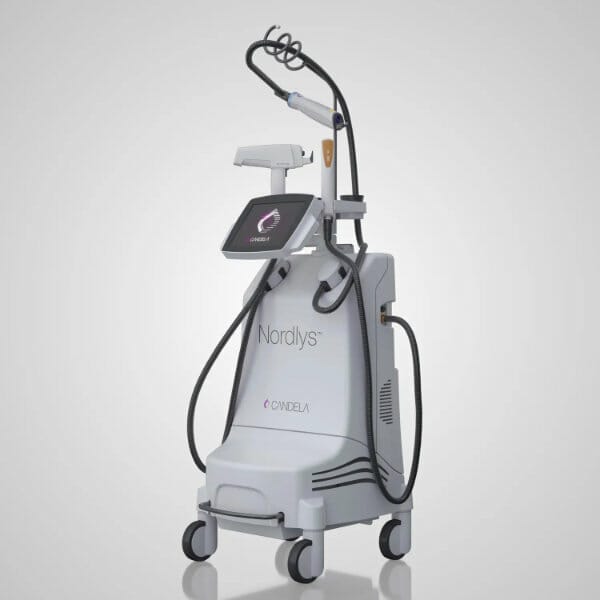
IPL Is Effective For Rosacea
Reduction of Redness
IPL can target and constrict blood vessels that contribute to the redness and flushing associated with rosacea. The heat generated by the light energy helps to collapse the blood vessels, leading to a reduction in redness.
Flushing and Blushing
Improve Skin Texture
Lifestyle Changes for Rosacea Management
In addition to medical treatments, there are several natural remedies and lifestyle changes that can help manage the symptoms of rosacea. While these approaches may not cure rosacea, they can complement medical treatments and help reduce flare-ups. Here are some tips to incorporate into your daily routine:
- Avoid Triggers: Identify and avoid the triggers that worsen your rosacea symptoms. Common triggers include sun exposure, hot and spicy foods, alcohol, stress, and extreme temperatures. By avoiding these triggers, you can minimize the risk of flare-ups.
- Gentle Skincare Routine: Use gentle skincare products that are specifically formulated for sensitive skin. Avoid harsh cleansers, exfoliants, and scrubs, as they can irritate the skin and worsen rosacea symptoms. Opt for mild, fragrance-free products that hydrate and soothe the skin.
- Sun Protection: Protect your skin from the harmful effects of the sun by wearing a broad-spectrum sunscreen with a high SPF on a daily basis. Additionally, wear a wide-brimmed hat and seek shade during peak sun hours.
- Stress Management: Find healthy ways to manage stress, as stress is a common trigger for rosacea flare-ups. Engage in relaxation techniques, such as deep breathing exercises, yoga, or meditation. Incorporate activities that bring you joy and help you unwind.
- Diet and Nutrition: While there is no specific diet for rosacea, some individuals find that certain foods can trigger flare-ups. Keep a food diary to identify any potential triggers and consider eliminating or reducing them from your diet. Additionally, incorporate foods that are rich in antioxidants, such as fruits and vegetables, to support overall skin health.
Remember, it is important to consult with a healthcare professional before making any significant changes to your lifestyle or trying natural remedies. They can provide personalized advice and ensure that these approaches are safe and suitable for your specific condition.
Aftercare and Maintenance for Rosacea Management
After completing your rosacea treatment, it is important to continue with a proper aftercare and maintenance routine to manage your condition effectively. We have had great patient experiences with AlumierMD, and we can recommend specific products to help. Here are some tips for aftercare and long-term maintenance:
- Skincare Routine: Continue using gentle skincare products that are suitable for sensitive skin. Cleanse your face twice a day with a mild cleanser and moisturize regularly to keep your skin hydrated.
- Sun Protection: Protect your skin from the sun by wearing a broad-spectrum sunscreen with a high SPF on a daily basis. Reapply sunscreen every two hours and seek shade during peak sun hours.
- Avoid Triggers: Be mindful of the triggers that worsen your rosacea symptoms and avoid them as much as possible. This may include certain foods, extreme temperatures, and stressful situations.
- Regular Check-ups: Schedule regular follow-up appointments with your specialist to monitor your progress and adjust your treatment plan if necessary. Regular check-ups are essential for long-term management of rosacea.
- Emotional Support: Living with rosacea can be emotionally challenging at times. Seek support from friends, family, or support groups who understand and can relate to your experiences. Emotional support can help you cope with the impact of rosacea on your self-esteem and overall well-being.
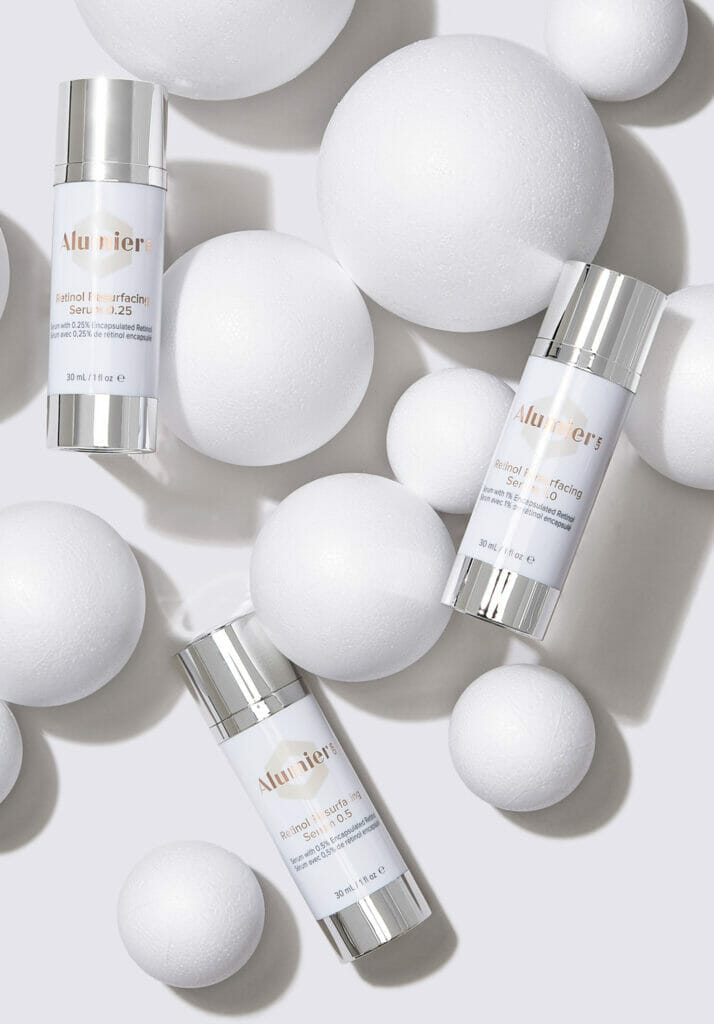
Remember, rosacea is a chronic condition that requires ongoing management. With proper aftercare and maintenance, you can minimize flare-ups and enjoy clearer, more comfortable skin.
Stephanie Mirsky, PA-C
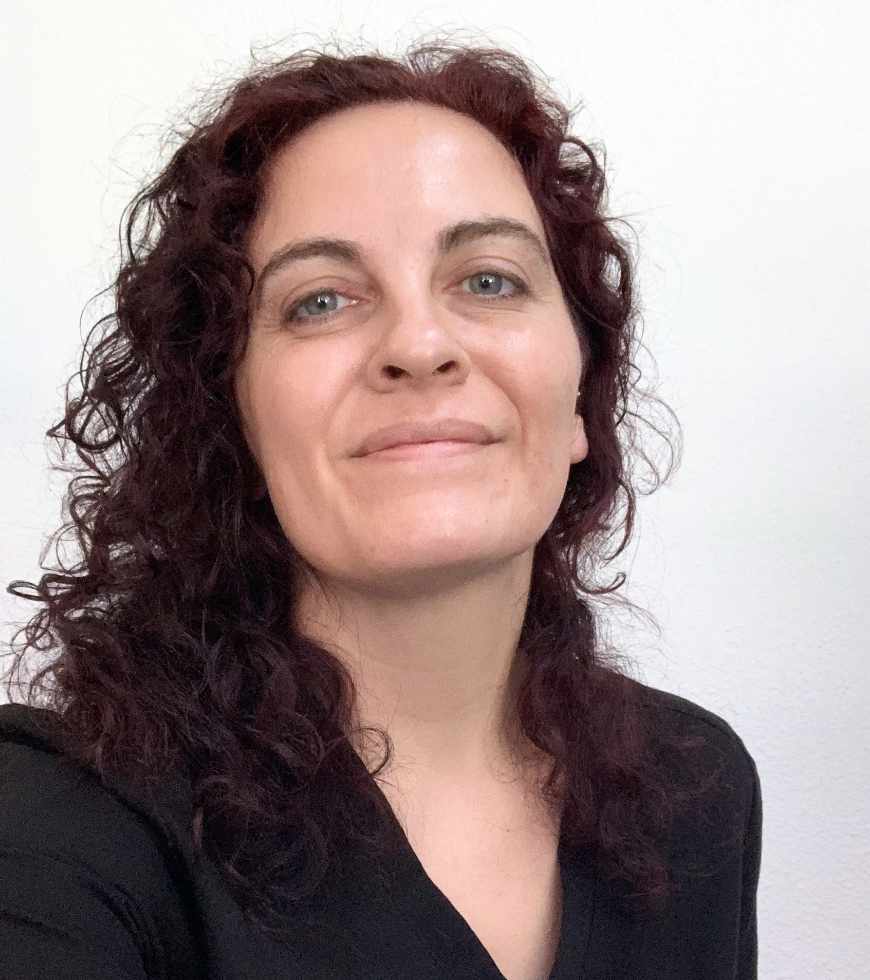
IPL is a transformative procedure for rosacea treatment that can be completed quickly, without pain, and with results that are apparent quickly. It’s a treatment I enjoy doing for my patients because it achieves reliable results.
Stephanie Mirsky, PA-C
Co-Owner and Medical Provider
Further Reading & References
Questions About Rosacea Treatment (FAQ)
Rosacea Treatment in Orlando, FL
Vitality Medical Aesthetics is A Medical Spa conveniently located to serve Orlando, Winter Park, and greater Central Florida.
Disclaimer: This article is intended for informational and educational purpose. It is not individual medical advice. Book a consultation for individual medical advice.
